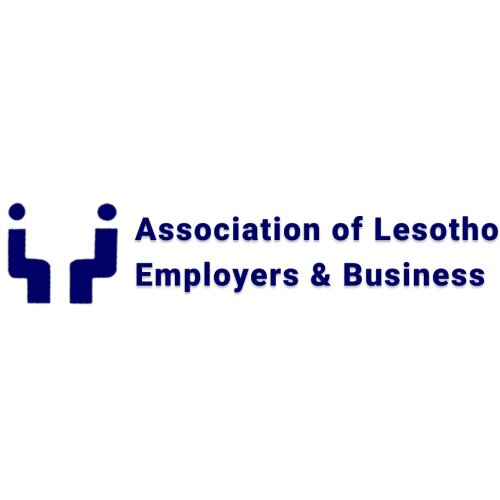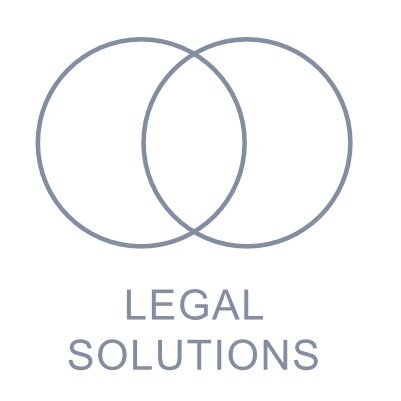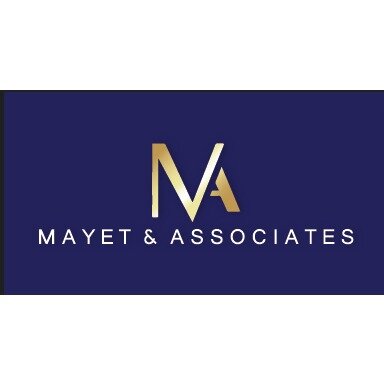Best Restructuring & Insolvency Lawyers in Maseru
Share your needs with us, get contacted by law firms.
Free. Takes 2 min.
List of the best lawyers in Maseru, Lesotho
About Restructuring & Insolvency Law in Maseru, Lesotho
Restructuring and insolvency law in Maseru, Lesotho, provides a legal framework for businesses and individuals facing financial distress. This area of law seeks to give fair processes for creditors and debtors while aiming to preserve value, maximize returns for stakeholders, and enable viable businesses to recover where possible. In Maseru, like other parts of Lesotho, insolvency involves formal proceedings, either for reorganizing a company’s debts or for liquidating assets to repay creditors. The legal processes are usually governed by the Insolvency Proclamation and other relevant commercial statutes. With Maseru serving as the capital and economic hub of Lesotho, restructuring and insolvency matters are frequently handled through its legal institutions.
Why You May Need a Lawyer
Legal representation is critical in restructuring and insolvency for several reasons. If you own a business facing overwhelming debt, a lawyer can help you determine if restructuring your debt is a feasible option. Individuals may need assistance in cases of personal bankruptcy or when facing aggressive debt collection. For creditors, legal advice ensures your claims are properly filed and that your interests are protected throughout the process. Lawyers are also invaluable if you are being sued by creditors, wish to negotiate payment terms, or are being investigated for possible fraudulent transfers or preferential payments before an insolvency. Furthermore, navigating court procedures and complying with statutory requirements often requires skilled legal expertise.
Local Laws Overview
Lesotho's primary legal instrument for insolvency is the Insolvency Proclamation, supplemented by aspects of the Companies Act and other business legislation. In Maseru, insolvency cases are mainly brought before the High Court. The laws distinguish between business insolvency and personal bankruptcy. Business restructuring mechanisms are limited, but there is provision for schemes of arrangement and compromises with creditors, subject to court approval. When liquidation is the only viable solution, assets are gathered and sold under court supervision, with proceeds distributed according to the prescribed order of preference. Directors of companies in distress are obliged to act in the best interests of creditors once the entity is insolvent, and failing to do so can lead to personal liability. There are also specific rules dealing with unfair preferences, fraudulent conveyances, and suspect transactions prior to insolvency.
Frequently Asked Questions
What is the difference between restructuring and insolvency?
Restructuring typically refers to reorganizing the debts and affairs of a business or individual to allow for repayment and continued operation. Insolvency is the state where an entity is unable to pay its debts as they fall due, which can lead to liquidation or bankruptcy proceedings.
How do I know if my business is insolvent?
You are likely insolvent if your business cannot pay debts when they are due or if your liabilities exceed your assets. Consulting a lawyer or accountant can help you assess your financial situation.
What happens during liquidation in Lesotho?
In liquidation, a court-appointed liquidator takes control of an insolvent company’s assets, sells them, and uses the proceeds to pay creditors following a legal hierarchy. Any remaining funds are returned to the owners.
Can I restructure my business debts without going to court?
Some restructurings can be negotiated directly with creditors without court intervention. However, formal schemes or compromises typically require court approval, especially if all creditors do not agree.
Are there alternatives to bankruptcy for individuals?
Yes, alternatives include negotiating payment arrangements with creditors or seeking a debt management plan. However, these options depend on the willingness of creditors and your financial position.
What are the consequences of insolvency for company directors?
Directors have heightened duties once a company is insolvent. Failure to act in creditors' best interests can result in personal liability for company debts.
How are creditors paid during insolvency proceedings?
Payments are made in a specific order - secured creditors, preferential creditors (such as employees), and then unsecured creditors. Any surplus after debts are settled is distributed to shareholders.
Can creditors force a company into liquidation?
Yes, creditors can file a court application to have a company declared insolvent and wound up if it fails to pay debts.
What is a scheme of arrangement?
A scheme of arrangement is a court-supervised process allowing a company to restructure its debts or operations with the consent of creditors and court approval.
Do I need a lawyer for restructuring or insolvency proceedings?
Legal representation is strongly recommended as the processes are technical, and missteps can have lasting or severe financial and legal consequences.
Additional Resources
For those seeking assistance, the following institutions and resources can provide guidance or support regarding restructuring and insolvency in Maseru, Lesotho:
- The High Court of Lesotho - Commercial Division
- Lesotho Revenue Authority (LRA)
- Law Society of Lesotho
- Lesotho Chamber of Commerce and Industry
- Local branches of commercial banks and creditors’ associations
- Professional accounting and legal firms specializing in insolvency
These organizations can offer legal information, direct you to professional service providers, or help you understand your rights and obligations.
Next Steps
If you are facing financial distress, suspect your business may be insolvent, or are a creditor concerned about recovering your debts, it is important to take prompt action. Start by gathering all relevant financial documents and records. Next, seek professional advice from a lawyer experienced in restructuring and insolvency. They can assess your specific situation, explain your rights, and develop a strategy to protect your interests. Consider contacting professional bodies such as the Law Society of Lesotho for referrals. Lastly, act quickly as delay can worsen financial problems and limit your available options under the law.
Lawzana helps you find the best lawyers and law firms in Maseru through a curated and pre-screened list of qualified legal professionals. Our platform offers rankings and detailed profiles of attorneys and law firms, allowing you to compare based on practice areas, including Restructuring & Insolvency, experience, and client feedback.
Each profile includes a description of the firm's areas of practice, client reviews, team members and partners, year of establishment, spoken languages, office locations, contact information, social media presence, and any published articles or resources. Most firms on our platform speak English and are experienced in both local and international legal matters.
Get a quote from top-rated law firms in Maseru, Lesotho — quickly, securely, and without unnecessary hassle.
Disclaimer:
The information provided on this page is for general informational purposes only and does not constitute legal advice. While we strive to ensure the accuracy and relevance of the content, legal information may change over time, and interpretations of the law can vary. You should always consult with a qualified legal professional for advice specific to your situation.
We disclaim all liability for actions taken or not taken based on the content of this page. If you believe any information is incorrect or outdated, please contact us, and we will review and update it where appropriate.












